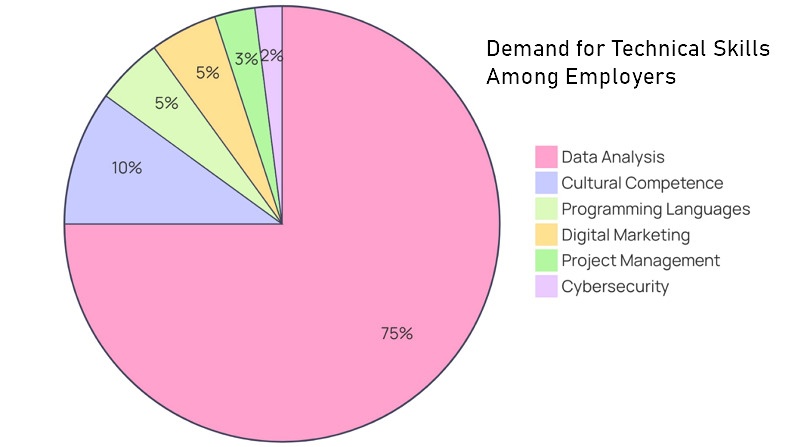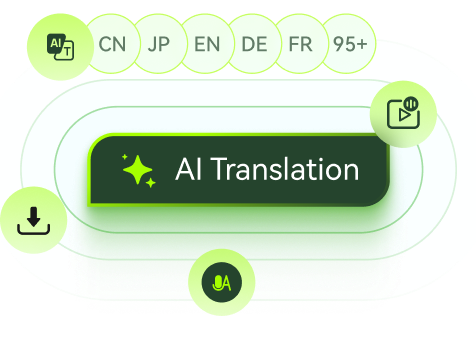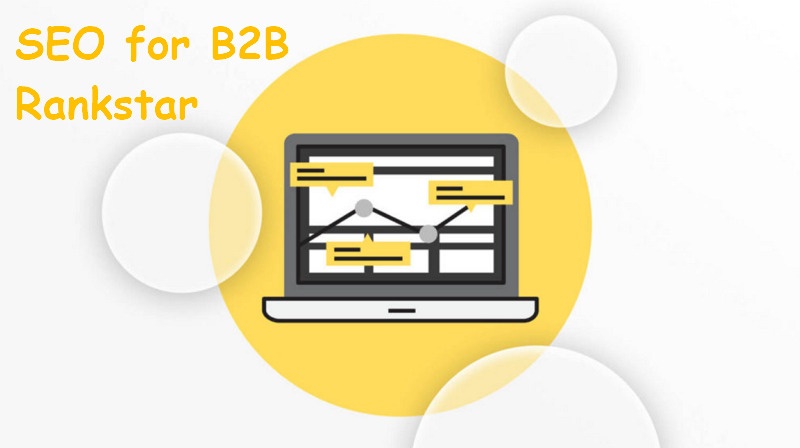In today’s competitive job market, skills are the new currency. No matter your industry or career stage, the right skill set is the key to landing interviews, advancing in your profession, or standing out in a pool of applicants. Employers aren’t just hiring degrees; they are hiring capabilities. That’s why knowing what skills to put on resume is crucial.
However, listing your skills the right way can be tricky. Don’t worry; this guide covers the most relevant, in-demand, and , helping you get results!
Part 1. Top In-Demand Technical Skills by Industry

Hard or technical skills require specialized education and training. They are easier to prove than soft skills by certifications, degree, and portfolio. These are in demand in the finance, engineering, business, and healthcare industries. However, when it comes to a specific industry, people often inquire what are some skills to put on a resume. As each job role requires a different blend, let’s explore the best skills to put on a resume in 2026 by key industries:
Information Technology (IT)
As data becomes the backbone of every industry, IT professionals are stepping into critical, high-impact roles. However, as a starting point, you should acquire the following skills to put on your resume:
1.Cloud computing (AWS, Azure, Google Cloud)
2.Data analysis (Excel, Power BI, Tableau)
3.Cybersecurity & ethical hacking
4.Software development (Python, JavaScript, C++)
5.DevOps and CI/CD pipelines
6.Blockchain development
Marketing & Content Creation
The marketing field encompasses various roles and industries. So, always choose those skills to put on your resume that are relevant to your career. Here are some top ones to have an idea of what skills are to put on a resume:
SEO/SEM (including tools like Ahrefs and SEMrush)
Email marketing automation (HubSpot, Mailchimp)
Social media analytics (Meta Insights, LinkedIn Analytics)
Social media management (Instagram, LinkedIn, TikTok, etc.)
Video editing & production (Adobe Premiere, Final Cut Pro)
UX/UI design (Figma, Adobe XD)
Video Production and Editing (BlipCut)
Finance & Banking

Finance professionals are expected to interpret data, understand risk, and contribute to decisions that influence entire organizations. A strong foundation paired with critical thinking can unlock rewarding opportunities in diverse financial environments.
Data analytics (Excel, Power BI, Tableau)
Financial systems & software (QuickBooks, SAP, Oracle)
Microsoft Excel (advanced functions, pivot tables, macros)
ESG reporting
Regulatory compliance systems (SOX, Basel III)
Financial planning and analysis (FP&A)
Healthcare & Life Sciences
Healthcare is transforming at a remarkable pace with innovation. Professionals in this field navigate complex systems, support critical decisions, and improve lives through precision and care.
Electronic Medical Records (EMR) systems
Telemedicine technology
Data visualization in healthcare
Bioinformatics
Part 2: Top Soft Skills to Add on Resume for All Industry

Along with tools and technologies, employers are hiring people who can work well with others, solve complex problems, and adapt to change. Hence, these have become the best skills to put on resume. When thinking about what kind of skills to put on resume, don’t underestimate the power of soft skills.
Here are universal examples of skills to put on a resume for all industries that reflect emotional intelligence and leadership potential:
Effective Communication: Clearly convey ideas, actively listen, observe, write, and speak to others confidently
Emotional Intelligence: Recognize, manage, and understand emotions to build stronger workplace relationships
Teamwork & Collaboration: Work cooperatively with other colleagues to achieve common goals and success
Problem-solving: Analyze situations, identify issues, and make informed decisions
Multitasking: Manage multiple responsibilities simultaneously without losing quality or focus
Time and Project Management: Organize tasks, set deadlines, and complete projects on schedule
Strong Attention to Detail: Catch small errors, follow instructions carefully, and maintain high accuracy
Adaptability: Adjust quickly to changes and remain effective in dynamic environments
Creativity: Generate original ideas and innovative solutions to overcome challenges
Positive Attitude: Maintain optimism, enthusiasm, and resilience in any work environment
Work Ethics: Show reliability, responsibility, and commitment to high job performance
Leadership: Inspire, guide, and motivate teams to achieve goals while working in leadership positions
Part 3: Best Emerging Skills for Resume in 2026
As industries evolve rapidly, so should your resume. In 2026, emerging technologies, remote work, and sustainability are creating new categories of great skills to put on a resume. These represent the future, and employers are eager to hire talent ahead of the curve. Let’s delve into some examples of skills to put on a resume by various emerging industries:
1. AI & Automation

AI & Automation skills are essential for professionals to enhance productivity and innovation across industries by streamlining tasks and unlocking deeper insights.
Prompt Engineering for ChatGPT: Writing clear, strategic prompts for ChatGPT and other LLMs to maximize accuracy, creativity, and task-specific performance
AI-Driven Data Analysis: Using tools like Power BI with AI capabilities to check insights, predict trends, and automate complex data interpretation tasks
RPA (Robotic Process Automation): Automating repetitive tasks across software systems
AI Tool Proficiency: Understanding platforms like Midjourney, DALL·E, Jasper, etc., for content creation, automation, and decision-making
BlipCut AI Video Translator: Translate multiple videos into different languages using AI, enhancing global reach and accessibility
2. Remote Work Mastery

Mastering remote work tools and practices ensures seamless communication, security, and leadership in hybrid or distributed teams. These skills are now critical for maintaining trust in digital workplaces.
Asynchronous Communication: Fluency in tools like Slack, Loom, and Trello to communicate clearly and efficiently without real-time interaction
Cybersecurity Basics: Secure file sharing, prevent phishing, and use VPNs to protect sensitive information and ensure secure digital collaboration
Virtual Team Leadership: Manage remote teams effectively, build engagement, and confidently lead projects across time zones
Digital Workspace Tools: Expertise in Notion, ClickUp, Microsoft Teams, and other workspace tools
3. Sustainability Skills

Sustainability skills demonstrate your ability to align business practices with environmental and social responsibility goals. These abilities are increasingly valued in finance, operations, and strategic decision-making.
Carbon Footprint Analysis: Evaluate and reduce operational emissions by analyzing energy use and environmental impact across business activities. It is especially useful in operations and supply chain roles.
ESG Reporting (SASB): Compile and report environmental, social, and governance data to meet stakeholder and compliance expectations
Green Procurement: Implement eco-friendly sourcing strategies to reduce environmental impact in manufacturing and retail supply chains
Conclusion
What are good skills to put on a resume that can make you stand out in 2026? This post has explained that combining proven technical proficiencies with universal soft skills is necessary. However, don’t forget to comply with current industry trends by gaining emerging skills such as expertise in AI tools like ChatGPT, BlipCut Video Translator, etc. You can tailor each skill section to the role you’re applying for!
Leave a Comment
Create your review for BlipCut articles








Blake Keeley
Editor-in-Chief at BlipCut with over three years of experience, focused on new trends and AI features to keep content fresh and engaging.
(Click to rate this post)